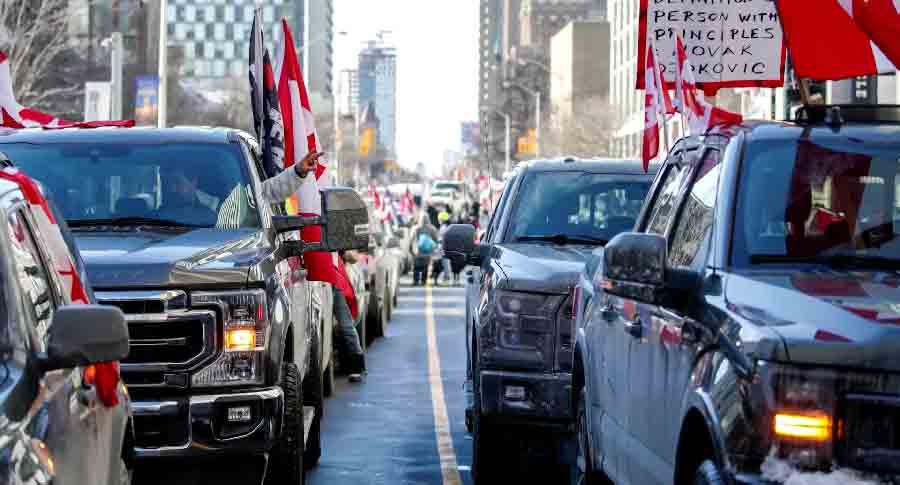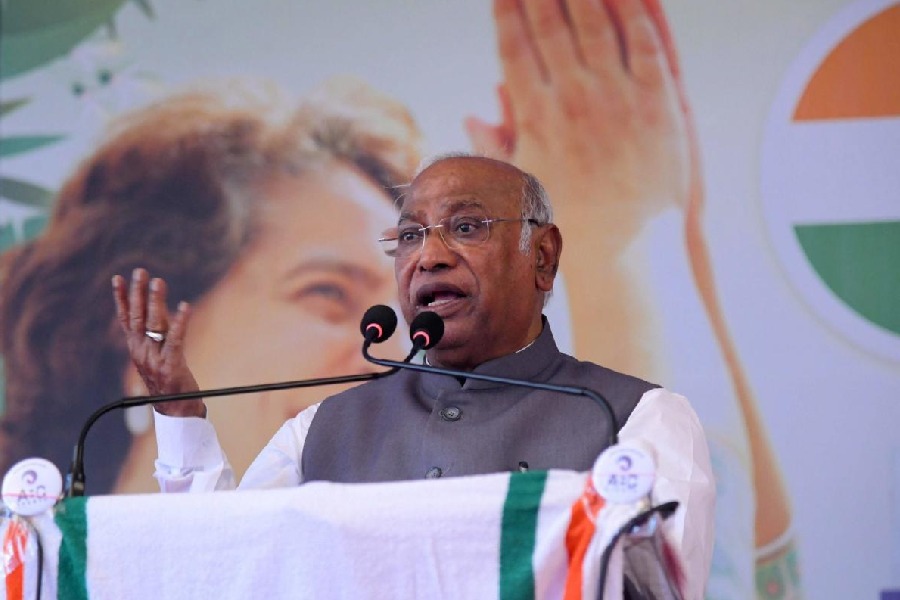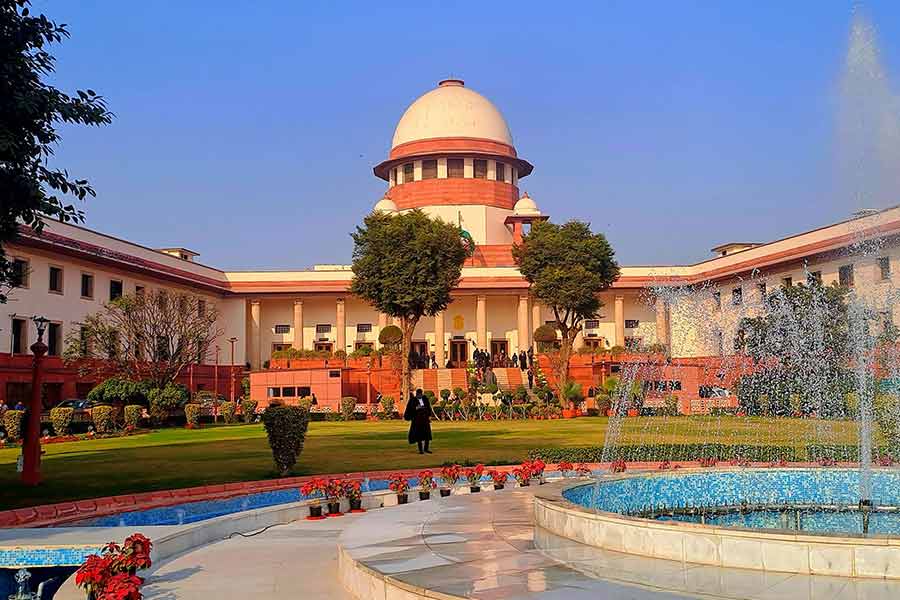Canadian authorities are scrambling to find ways to end the 12-day-long occupation of the national capital’s downtown over Covid-19 measures, hoping a combination of criminal charges, traffic tickets and the prospect of losing access to fuel will end the blockades.
The protests, which started with truck drivers landing in Ottawa in late January, have spread to other parts of the country, and late Monday demonstrators blocked the Ambassador Bridge linking Canada and the US, halting traffic from both directions.
The bridge, one of the busiest border crossings on the continent, handling around 8,000 trucks a day, reopened on Tuesday for US-bound vehicles, but the Canada Border Services Agency’s website showed lanes from the US were still “temporarily closed” on Wednesday morning.
Business associations on both sides of the border have called for the reopening of the bridge, and in a joint statement, said, “As our economies emerge from the impacts of the pandemic, we cannot allow any group to undermine the cross-border trade that supports families on both sides of the border.”
In Ottawa, the number of protesters against public health measures to fight Covid-19 is dropping, the police say.
But many of the remaining demonstrators in Ottawa were highly “determined and volatile”, the deputy police chief, Steve Bell, said on Tuesday. Protesters say they are peaceful but some waved Confederate Flags and swastikas in the occupation’s early days. Some Ottawa residents have said they were attacked.











